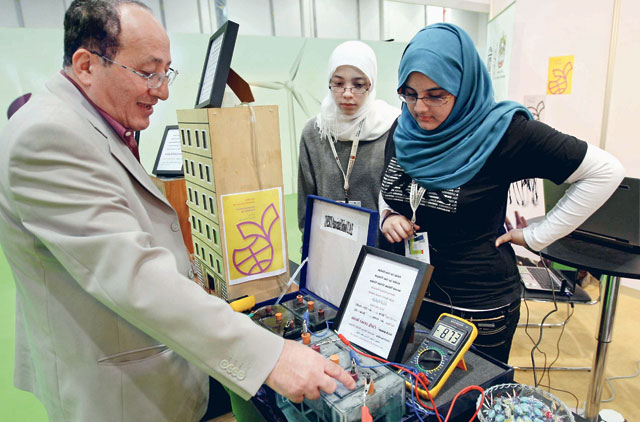Abu Dhabi: Green initiatives in Mohammad Bin Zayed (MBZ) City, a residential city under construction on the outskirts of Abu Dhabi, will give financial benefits worth billions to both government and plot owners, according to Abu Dhabi Municipality.
The district cooling system will result in a saving of almost Dh2 billion over 25 years for the government because it will reduce the total power demand by 40 per cent at the primary substations, a senior official said at the stall of Department of Municipal Affairs in the World Future Energy Summit (WFES) in the capital.
The system will give the plot owners average savings per building of almost Dh5 million in 25 years, said Engineer Abdullah Al Shamsi, Acting Executive Director of Municipal Infrastructure and Assets Sectors at the Municipality of Abu Dhabi City.
The irrigation water demand will be met by the recycled waste water generated in MBZ city.
Irrigation water demand will be less than 90 per cent of the waste water generated in the city, so no potable water will be used.
Solar-powered shelters
Solar panels on bus shelters will provide power for lighting and air-conditioning in Mohammad Bin Zayed City, a senior official said.
Apart from that, solar powered LED lighting will reduce power consumption and the cost to the government by 60 per cent, said Engineer Abdullah Al Shamsi of Abu Dhabi Municipality.
The official added that Abu Dhabi will reduce power consumption by up to 40 per cent by introducing energy efficient LED (Light Emitting Diodes) lights on streets and buildings across the emirate soon.
DMA is finalising a policy to promote the use of LED lights, which will minimize the heat generated from lighting, Al Shamsi said.
"They [LED] are energy efficient and cost effective also; they have a high durability and the cost can be recovered in seven years thanks to the savings from reduced power consumption," he explained.
A pilot project using LED lights in Al Mushrif was successful, he said.












